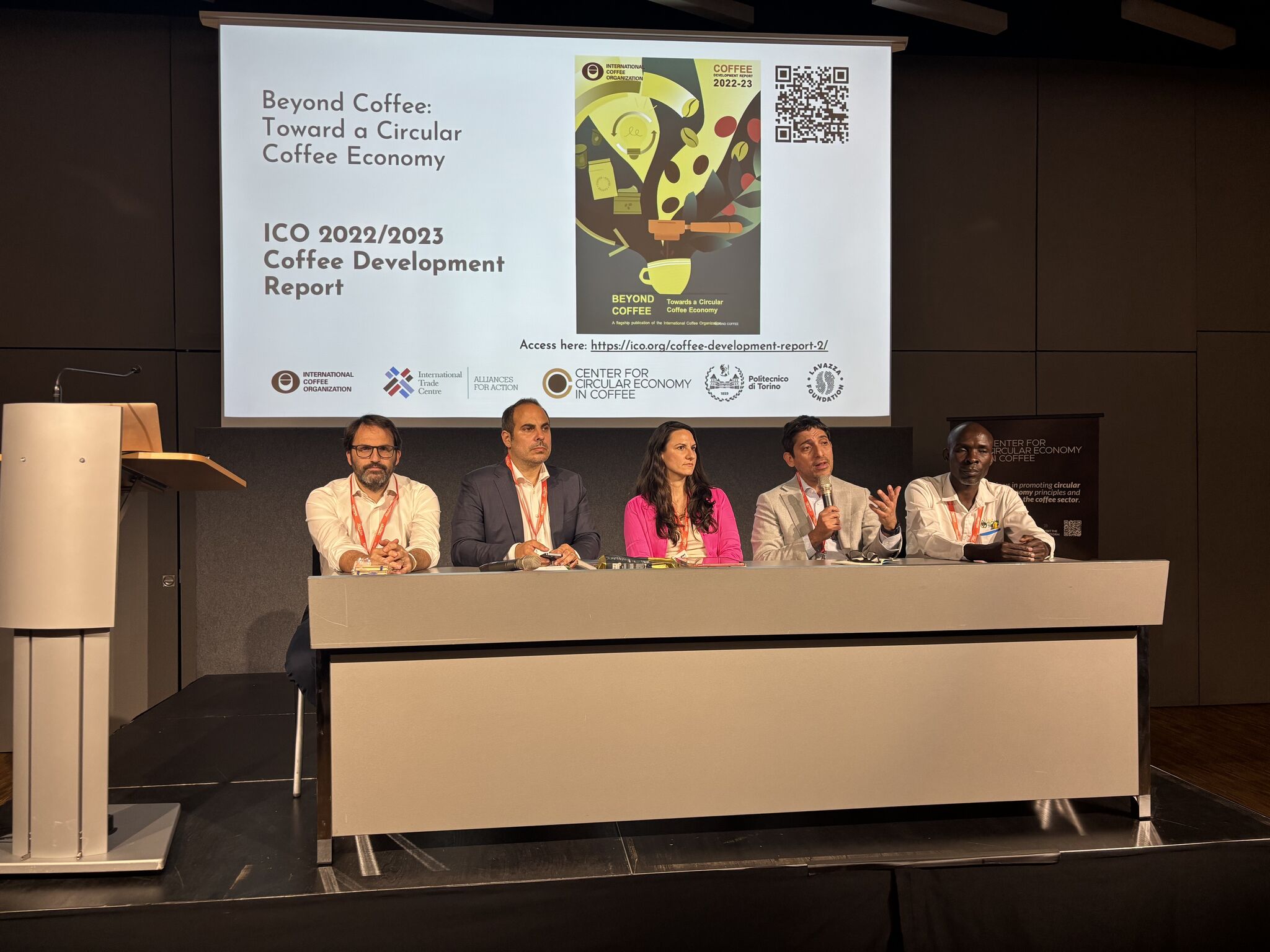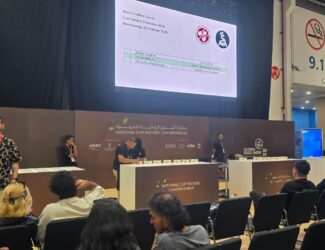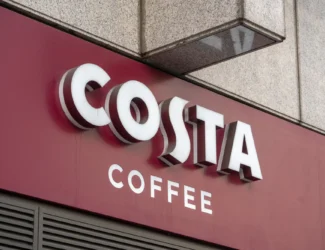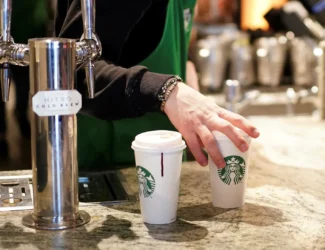
Circular Economy and Regenerative Agriculture at the Heart of Discussions at World of Coffee Geneva 2025
This was my first time attending a coffee exhibition in Europe, and I consider myself fortunate that this year’s edition took place in the Swiss city of Geneva. I also feel privileged to have met representatives from the Center for Circular Economy in Coffee, the International Coffee Organization (ICO), and the International Trade Centre (ITC)—organizations we’ve consistently followed at Qahwa World, covering their activities and news from afar, without ever meeting them in person. We did, however, attend a few online meetings held by the Circular Economy Center, especially after our membership in the center was officially accepted.
Beyond meeting such outstanding individuals from these influential organizations, attending the panel sessions held on the first day of World of Coffee Geneva 2025 proved highly valuable and insightful. The International Trade Centre (ITC) hosted a standout panel that brought together key actors from across the global coffee sector to discuss how circular economy principles and regenerative agriculture can enhance environmental sustainability while ensuring prosperous and dignified livelihoods for producers around the world.
Held on Thursday, 26 June, the panel was anchored in the latest recommendations from the Coffee Development Report, recently released by the International Coffee Organization (ICO) in collaboration with ITC, the Lavazza Foundation, Politecnico di Torino, and the Center for Circular Economy in Coffee (C4CEC). The session highlighted real-world, actionable solutions to help transition the coffee sector toward a more inclusive and circular model that reinvests overlooked resources into new sources of value.
As Rogers Wasibi, General Manager of Mount Elgon Coffee and Honey Cooperative in Uganda, pointed out:
“We need to stop calling it coffee waste and start seeing it for what it is—a sustainable source of high-value products and new opportunities for communities.”
The expert panel featured:
-
Miguel Zamora, ICO’s Coffee Public-Private Task Force
-
Natalia Fernandes Carr, Cooxupé and Brazil’s National Coffee Council (CNC)
-
Dario Toso, from C4CEC
-
Moderated by Hernan Manson of ITC
The panelists revealed that the coffee sector generates more than 40 million tonnes of biomass every year—including coffee pulp, husks, silverskin, and fermentation residues. Yet most of this material is discarded, despite its rich potential for economic and environmental value.
Speakers shared inspiring case studies from Africa, Latin America, and Europe—ranging from composting projects to biochar production and the development of biodegradable materials—highlighting how these innovations are helping producers become more resilient in the face of climate change and market fluctuations.
On the sidelines of World of Coffee Geneva 2025, ITC and C4CEC also co-hosted a vibrant, interactive showcase as part of the Green Coffee Connect program led by the Specialty Coffee Association. This session spotlighted pioneering entrepreneurs who are transforming coffee by-products into creative, high-impact products—from face scrubs made with coffee and honey to eco-friendly packaging materials.
Some of the most compelling examples came from cooperatives in Colombia and Ethiopia, where spent coffee grounds are being locally processed into marketable goods that are sold both domestically and abroad.
The session clearly underscored that sustainability in coffee cannot be achieved solely through environmental conservation—it must also be rooted in empowering producing communities, diversifying income streams, and ensuring fair value distribution across the supply chain.
As World of Coffee Geneva 2025 continues, the global push toward a circular, regenerative coffee industry is gaining momentum—a shift that redefines the relationship between land, producer, and consumer.
The future of coffee isn’t just circular—it’s inclusive, regenerative, and full of opportunity.
View this post on Instagram



